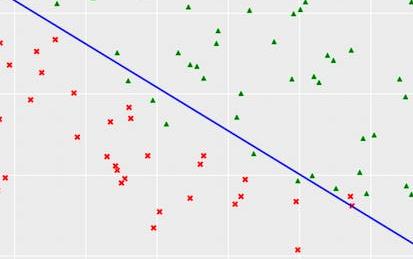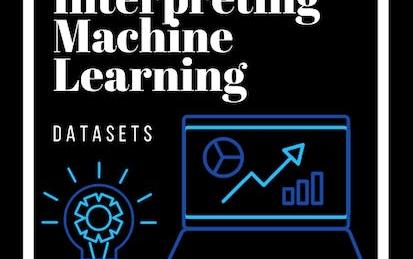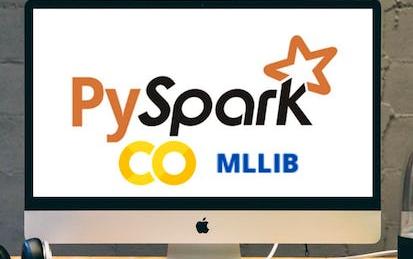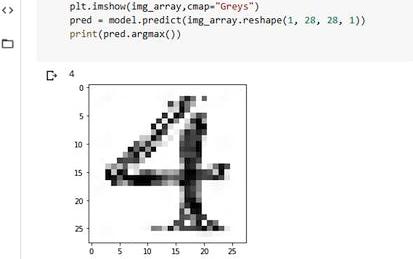

Our Courses

Introduction to the Tidyverse
This course introduces a powerful set of data science tools known as the Tidyverse. The Tidyverse has revolutionized the way in which data scientists do almost every aspect of their job. We will cover the simple idea of "tidy data" and how this idea serves to organize data for analysis and modeling. We will also cover how non-tidy can be transformed to tidy data, the data science project life cycle, and the ecosystem of Tidyverse R packages that can be used to execute a data science project.
-
Course by

-
 Self Paced
Self Paced
-
 English
English

Logistic Regression with NumPy and Python
Welcome to this project-based course on Logistic with NumPy and Python. In this project, you will do all the machine learning without using any of the popular machine learning libraries such as scikit-learn and statsmodels. The aim of this project and is to implement all the machinery, including gradient descent, cost function, and logistic regression, of the various learning algorithms yourself, so you have a deeper understanding of the fundamentals.
-
Course by

-
 Self Paced
Self Paced
-
 2 hours
2 hours
-
 English
English

Google Advanced Data Analytics Capstone
You’re almost there! This is the seventh and final course of the Google Advanced Data Analytics Certificate. In this course, you have the opportunity to complete an optional capstone project that includes key concepts from each of the six preceding courses.
-
Course by

-
 Self Paced
Self Paced
-
 10 hours
10 hours
-
 English
English

Politics and Ethics of Data Analytics in the Public Sector
Deepen your understanding of the power and politics of data in the public sector, including how values — in addition to data and evidence — are always part of public sector decision-making. In this course, you will explore common ethical challenges associated with data, data analytics, and randomized controlled trials in the public sector. You will also navigate and understand the ethical issues related to data systems and data analysis by understanding frameworks, codes of ethics, and professional guidelines.
-
Course by

-
 Self Paced
Self Paced
-
 14 hours
14 hours
-
 English
English

Introduction to High-Performance and Parallel Computing
This course introduces the fundamentals of high-performance and parallel computing. It is targeted to scientists, engineers, scholars, really everyone seeking to develop the software skills necessary for work in parallel software environments. These skills include big-data analysis, machine learning, parallel programming, and optimization. We will cover the basics of Linux environments and bash scripting all the way to high throughput computing and parallelizing code. We recommend you are familiar with either Fortran 90, C++, or Python to complete some of the programming assignments.
-
Course by

-
 Self Paced
Self Paced
-
 14 hours
14 hours
-
 English
English

Medical Insurance Premium Prediction with Machine Learning
In this 1-hour long project-based course, you will learn how to predict medical insurance cost with machine learning. The objective of this case study is to predict the health insurance cost incurred by Individuals based on their age, gender, Body Mass Index (BMI), number of children, smoking habits, and geo-location. Note: This course works best for learners who are based in the North America region. We’re currently working on providing the same experience in other regions.
-
Course by

-
 Self Paced
Self Paced
-
 2 hours
2 hours
-
 English
English

Computational Social Science Methods
This course gives you an overview of the current opportunities and the omnipresent reach of computational social science. The results are all around us, every day, reaching from the services provided by the world’s most valuable companies, over the hidden influence of governmental agencies, to the power of social and political movements. All of them study human behavior in order to shape it. In short, all of them do social science by computational means. In this course we answer three questions: I. Why Computational Social Science (CSS) now? II. What does CSS cover? III.
-
Course by

-
 Self Paced
Self Paced
-
 11 hours
11 hours
-
 English
English

Mathematics for Machine Learning: PCA
This intermediate-level course introduces the mathematical foundations to derive Principal Component Analysis (PCA), a fundamental dimensionality reduction technique. We'll cover some basic statistics of data sets, such as mean values and variances, we'll compute distances and angles between vectors using inner products and derive orthogonal projections of data onto lower-dimensional subspaces.
-
Course by

-
 Self Paced
Self Paced
-
 21 hours
21 hours
-
 English
English

What is Data Science?
Do you want to know why data science has been labeled the sexiest profession of the 21st century? After taking this course, you will be able to answer this question, understand what data science is and what data scientists do, and learn about career paths in the field. The art of uncovering insights and trends in data has been around since ancient times. The ancient Egyptians used census data to increase efficiency in tax collection and accurately predicted the Nile River's flooding every year. Since then, people have continued to use data to derive insights and predict outcomes.
-
Course by

-
 Self Paced
Self Paced
-
 19 hours
19 hours
-
 English
English

Interpreting Machine Learning datasets
In this 2-hour long project-based course, you will learn how to interpret the dataset for machine learning, how different features impact on a mode and how to evaluate them.
-
Course by

-
 Self Paced
Self Paced
-
 2 hours
2 hours
-
 English
English

Predicting the Weather with Artificial Neural Networks
In this one hour long project-based course, you will tackle a real-world prediction problem using machine learning.
-
Course by

-
 Self Paced
Self Paced
-
 2 hours
2 hours
-
 English
English

AI For Everyone
AI is not only for engineers. If you want your organization to become better at using AI, this is the course to tell everyone--especially your non-technical colleagues--to take.
-
Course by

-
 Self Paced
Self Paced
-
 11 hours
11 hours
-
 English
English

Diabetes Prediction With Pyspark MLLIB
In this 1 hour long project-based course, you will learn to build a logistic regression model using Pyspark MLLIB to classify patients as either diabetic or non-diabetic. We will use the popular Pima Indian Diabetes data set. Our goal is to use a simple logistic regression classifier from the pyspark Machine learning library for diabetes classification. We will be carrying out the entire project on the Google Colab environment with the installation of Pyspark.You will need a free Gmail account to complete this project.
-
Course by

-
 Self Paced
Self Paced
-
 3 hours
3 hours
-
 English
English

Follow a Machine Learning Workflow
Machine learning is not just a single task or even a small group of tasks; it is an entire process, one that practitioners must follow from beginning to end. It is this process—also called a workflow—that enables the organization to get the most useful results out of their machine learning technologies. No matter what form the final product or service takes, leveraging the workflow is key to the success of the business's AI solution.
-
Course by

-
 Self Paced
Self Paced
-
 20 hours
20 hours
-
 English
English

Unsupervised Learning, Recommenders, Reinforcement Learning
In the third course of the Machine Learning Specialization, you will: • Use unsupervised learning techniques for unsupervised learning: including clustering and anomaly detection. • Build recommender systems with a collaborative filtering approach and a content-based deep learning method. • Build a deep reinforcement learning model. The Machine Learning Specialization is a foundational online program created in collaboration between DeepLearning.AI and Stanford Online.
-
Course by

-
 Self Paced
Self Paced
-
 28 hours
28 hours
-
 English
English

Data Science Companion
The Data Science Companion provides an introduction to data science. You will gain a quick background in data science and core machine learning concepts, such as regression and classification. You’ll be introduced to the practical knowledge of data processing and visualization using low-code solutions, as well as an overview of the ways to integrate multiple tools effectively to solve data science problems. You will then leverage cloud resources from Amazon Web Services to scale data processing and accelerate machine learning model training.
-
Course by

-
 Self Paced
Self Paced
-
 2 hours
2 hours
-
 English
English

Build a Machine Learning Image Classifier with Python
In this 1-hour long project-based course, you will learn how to build your own Machine Learning Image Classifier using Python and Colab. You will be able to easily load the data, preview it, process and normalize it, then train and test your model! I hope you enjoy the experience! Note: This course works best for learners who are based in the North America region. We’re currently working on providing the same experience in other regions.
-
Course by

-
 Self Paced
Self Paced
-
 2 hours
2 hours
-
 English
English

Machine Learning Rapid Prototyping with IBM Watson Studio
An emerging trend in AI is the availability of technologies in which automation is used to select a best-fit model, perform feature engineering and improve model performance via hyperparameter optimization. This automation will provide rapid-prototyping of models and allow the Data Scientist to focus their efforts on applying domain knowledge to fine-tune models. This course will take the learner through the creation of an end-to-end automated pipeline built by Watson Studio’s AutoAI experiment tool, explaining the underlying technology at work as developed by IBM Research.
-
Course by

-
 Self Paced
Self Paced
-
 9 hours
9 hours
-
 English
English

Solving ML Regression Problems with AWS AutoGluon
Hello everyone and welcome to this new hands-on project on Machine Learning Regression with Amazon Web Services (AWS) AutoGluon. In this project, we will train several regression models using a super powerful library known as AutoGluon. AutoGluon is the library behind AWS SageMaker autopilot and it allows for quick prototyping of several powerful models using a few lines of code.
-
Course by

-
 Self Paced
Self Paced
-
 3 hours
3 hours
-
 English
English

Titanic Survival Prediction Using Machine Learning
In this 1-hour long project-based course, we will predict titanic survivors’ using logistic regression and naïve bayes classifiers. The sinking of the Titanic is one of the key sad tragedies in history and it took place on April 15th, 1912. The numbers of survivors were low due to lack of lifeboats for all passengers. This practical guided project, we will analyze what sorts of people were likely to survive this tragedy with the power of machine learning. Note: This course works best for learners who are based in the North America region.
-
Course by

-
 Self Paced
Self Paced
-
 3 hours
3 hours
-
 English
English

Deep-Dive into Tensorflow Activation Functions
You've learned how to use Tensorflow. You've learned the important functions, how to design and implement sequential and functional models, and have completed several test projects. What's next? It's time to take a deep dive into activation functions, the essential function of every node and layer of a neural network, deciding whether to fire or not to fire, and adding an element of non-linearity (in most cases). In this 2 hour course-based project, you will join me in a deep-dive into an exhaustive list of activation functions usable in Tensorflow and other frameworks.
-
Course by

-
 Self Paced
Self Paced
-
 2 hours
2 hours
-
 English
English

Prepare for DP-100: Data Science on Microsoft Azure Exam
Microsoft certifications give you a professional advantage by providing globally recognized and industry-endorsed evidence of mastering skills in digital and cloud businesses. In this course, you will prepare to take the DP-100 Azure Data Scientist Associate certification exam. You will refresh your knowledge of how to plan and create a suitable working environment for data science workloads on Azure, run data experiments, and train predictive models.
-
Course by

-
 Self Paced
Self Paced
-
 9 hours
9 hours
-
 English
English

Supervised Machine Learning: Regression
This course introduces you to one of the main types of modelling families of supervised Machine Learning: Regression. You will learn how to train regression models to predict continuous outcomes and how to use error metrics to compare across different models.
-
Course by

-
 Self Paced
Self Paced
-
 21 hours
21 hours
-
 English
English

CUDA at Scale for the Enterprise
This course will aid in students in learning in concepts that scale the use of GPUs and the CPUs that manage their use beyond the most common consumer-grade GPU installations. They will learn how to manage asynchronous workflows, sending and receiving events to encapsulate data transfers and control signals.
-
Course by

-
 Self Paced
Self Paced
-
 English
English

Machine Learning: Concepts and Applications
This course gives you a comprehensive introduction to both the theory and practice of machine learning. You will learn to use Python along with industry-standard libraries and tools, including Pandas, Scikit-learn, and Tensorflow, to ingest, explore, and prepare data for modeling and then train and evaluate models using a wide variety of techniques.
-
Course by

-
 Self Paced
Self Paced
-
 38 hours
38 hours
-
 English
English



